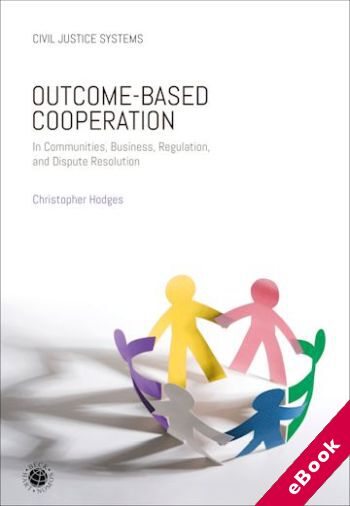
The device(s) you use to access the eBook content must be authorized with an Adobe ID before you download the product otherwise it will fail to register correctly.
For further information see https://www.wildy.com/ebook-formats
Once the order is confirmed an automated e-mail will be sent to you to allow you to download the eBook.
All eBooks are supplied firm sale and cannot be returned. If you believe there is a fault with your eBook then contact us on ebooks@wildy.com and we will help in resolving the issue. This does not affect your statutory rights.
How do we cooperate – in social, local, business, and state communities? This book proposes an Outcome-Based Cooperative Model, in which all stakeholders work together on the basis of trust and respect to achieve shared aims and outcomes.
The Outcome-Based Cooperative Model is built up from an extensive analysis of behavioural and social psychology, genetic anthropology, research into behaviour and culture in societies, organisations, regulation, and enforcement. The starting point is acceptance that humanity is facing ever larger risks, which are now systemic and even existential. To overcome the challenges, humans need to cooperate more, rather than compete, alienate, or draw apart. Answering how we do that requires basing ourselves, our institutions, and systems on relationships that are built on trust. Trust is based on evidence that we can be trusted to behave well (ethically), built up over time. We should aim to agree common goals and outcomes, moderating those that conflict, produce evidence that we can be trusted, and examine our performance in achieving the right outcomes, rather than harmful ones. The implications are that we need to do more in rebasing our relationships in local groupings, business organisations, regulation, and dispute resolution.
The book examines recent systems and developments in all these areas, and makes proposals of profound importance for reform. This is a new blueprint for liberty, solidarity, performance, and achievement.